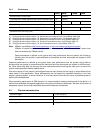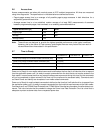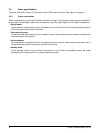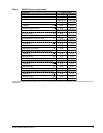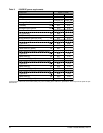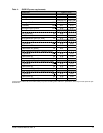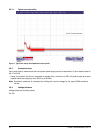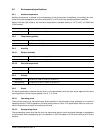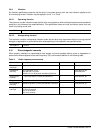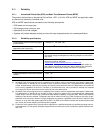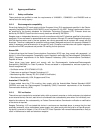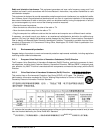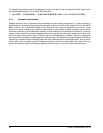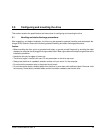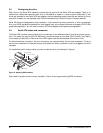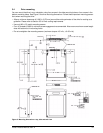
14 Pulsar Product Manual, Rev. A
2.9.6 Vibration
All vibration specifications assume that the drive is mounted securely with the input vibration applied at the
drive mounting screws. Vibration may be applied in the X, Y or Z axis.
2.9.6.1 Operating vibration
The maximum random vibration levels that the drive may experience while meeting the performance standards
specified in this document are specified below. This specification does not cover connection issues that may
result from testing at this level.
2.9.6.2 Nonoperating vibration
The maximum random nonoperating vibration levels that the drive may experience without incurring physical
damage or degradation in performance when subsequently put into operation are specified below.
2.10 Electromagnetic immunity
When properly installed in a representative host system, the drive operates without errors or degradation in
performance when subjected to the radio frequency (RF) environments defined in the following table:
20–2000 Hz 16 Grms
20–2000 Hz 16 Grms
Table 5: Radio frequency environments
Test Description Performance level Reference standard
Electrostatic
discharge
Contact, HCP, VCP: ± 4
kV; Air: ± 8 kV B EN 61000-4-2: 95
Radiated RF
immunity
80 to 1000 MHz, 3 V/m,
80% AM with 1 kHz sine
900 MHz, 3 V/m, 50% pulse modulation @ 200 Hz
A EN 61000-4-3: 96
ENV 50204: 95
Electrical fast
transient
± 1 kV on AC mains, ± 0.5 kV on external I/O B EN 61000-4-4: 95
Surge immunity ± 1 kV differential, ± 2 kV common, AC mains B EN 61000-4-5: 95
Conducted RF
immunity
150 kHz to 80 MHz, 3 Vrms, 80% AM with 1 kHz sine A EN 61000-4-6: 97
Voltage dips,
interrupts
0% open, 5 seconds
0% short, 5 seconds
40%, 0.10 seconds
70%, 0.01 seconds
C
C
C
B
EN 61000-4-11: 94



